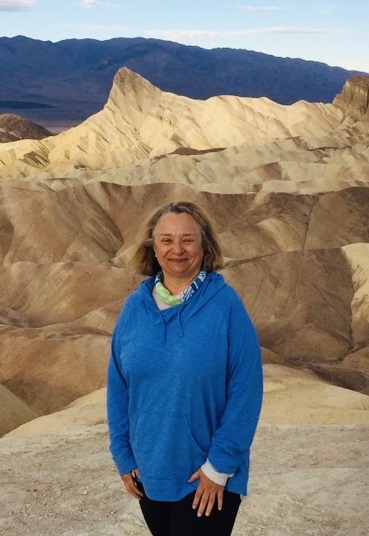The Mill City Times Interview: Dr. Julia Ponder, Executive Director, The Raptor Center
 Friday, July 10, 2020 at 6:55AM |
Friday, July 10, 2020 at 6:55AM |  Becky Fillinger |
Becky Fillinger | Article by Becky Fillinger

We’re lucky in the Twin Cities to share our environment with so many eagles, hawks, kestrels, falcons and owls. We’re also lucky to have a world class Raptor Center at the University of Minnesota. We talked to Julia Ponder, Executive Director, about the programs and other ways the public may interact with these magnificent birds.
Q: When was The Raptor Center (TRC) started at the University of Minnesota?
A: The Raptor Center at the U was founded in 1974 and moved to its current building in 1988. More information on our history can be found here. If there’s a research question about raptors – anywhere in the world – we will be asked for our input.
Q: I read in your bio that raptors are sentinels for infectious diseases and environmental contaminants. Can you tell us about this?
A: Raptors are sentinels on several levels. They can be sentinels for issues that impact individuals, populations and ecosystems. Like humans, raptors are at the top of the food chain where bioaccumulation of contaminants can have profound effects on health. The classic example is DDT, which pushed the peregrine falcon population towards extinction in the United States before being banned. Another on-going issue is lead toxicity in eagles. We have recognized this to be a problem for decades and have contributed to research showing that spent lead ammunition from deer hunting is the major source. Other researchers looked at these results and asked the question, "If eagles are getting lead poisoning from scavenging carcasses, what about humans eating venison harvested with lead ammunition?" Turns out, studies demonstrated the presence of lead - a highly toxic substance - in ground venison packages prepared for human consumption.
 Dr. Julia Ponder
Dr. Julia Ponder
Q: How did you become interested in raptors?
A: Raptors have long captivated human attention - they capture our imagination with their majesty and power. I have always been fascinated by birds and committed to conservation. Like so much of the rest of the world, I am just fascinated by raptors - I can't tell you exactly when it started. I feel extraordinarily lucky to have been able to combine my love of birds, raptors and conservation into an amazing professional career.
 From The Raptor Center on Instagram: “Just because we have to wear masks doesn't mean we can't look good while doing it!"
From The Raptor Center on Instagram: “Just because we have to wear masks doesn't mean we can't look good while doing it!"
Q: How may the public interact with TRC during the COVID-19 shutdown?
A: We’re trying to continue our interactions with the public as possible. That includes programs, volunteering and supporting our mission. Follow us on Facebook, YouTube and Instagram. We have many outreach program options, both virtual and at "your" location (outdoors). Check out our program where you can invite a raptor to your Zoom meeting! Right now, we have limited ability to train new volunteers and can only use a portion of our current volunteer group. That said, it is always good to let us know of interest in volunteering. Things do change, and rapidly, these days. The Raptor Center is very dependent on philanthropy with 60% of our operating budget coming through gifts. During COVID-19, with many of our earned revenue programs shuttered, philanthropy is more important than ever to us. We look forward to interacting with you again in person!
- - - - - - - - - - - - - - - - -
 About Becky Fillinger
About Becky Fillinger
I’ve been a resident of the Mill District only since July 2019, but have visited the Guthrie, the Farmers Market, restaurants and friends in the area for many years prior to making the leap to Minneapolis. I’ve lived in many places (and climates) in the US and can testify that our cultural events, bicycle and hiking trails, parks and green spaces, museums, diverse neighborhoods and wonderful restaurants put Minnesota and Minneapolis high on my best places list. I’m a member of the Mill City Singers and look forward to our choir practices and performances.
One of my main interests is community - a very broad concept. For me it means bringing people together with common interests to form meaningful relationships. I look forward to reporting on businesses and individuals in our neighborhoods. Feel free to drop me an email at becky_fillinger@hotmail.com with your thoughts and ideas for stories.
